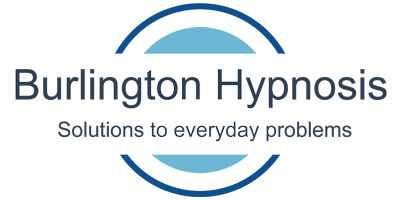
 Hypnotherapist Paul Gustafson RN CH offers a 6-class mentoring program for new certified hypnotherapists interested in taking the fast track to professional success. Paul incorporates high-end audio and video along with creatively effective sessions which offers eager clients consistently positive results. [more]
Hypnotherapist Paul Gustafson RN CH offers a 6-class mentoring program for new certified hypnotherapists interested in taking the fast track to professional success. Paul incorporates high-end audio and video along with creatively effective sessions which offers eager clients consistently positive results. [more]
Paul’s multilevel approach includes a dynamic client office experience, digital recording of client sessions, MP3 file sharing, cable TV show production with search engine optimization, blogging and social media distribution. [contact]

 This study checks out is effective and safe for people suffering from irritable bowel syndrome (IBS).
This study checks out is effective and safe for people suffering from irritable bowel syndrome (IBS).
A total of 464 patients received 7–12 hypnosis sessions over a 12 week period. At the end of therapy, hypnosis proved to be superior in producing adequate symptom relief.
This study demonstrated that hypnosis was safe and provided long-term adequate symptom relief in 54% of IBS patients compared to conventional therapy. [more]

 Hypnosis has been shown to be an effective treatment for irritable bowel syndrome (IBS) in a number of clinical studies.
Hypnosis has been shown to be an effective treatment for irritable bowel syndrome (IBS) in a number of clinical studies.
Hypnotherapy for IBS involves progressive relaxation, and then suggestions of soothing imagery and sensations focused on the individual’s symptoms.
Improvements in overall well-being, quality of life, abdominal pain, constipation, diarrhea, and bloating have been noted.
Contrary to many portrayals in fiction, a clinical hypnotherapist has no power over the hypnotized person. The person is typically aware of what happens both during and after the hypnosis session.
The treatment is generally comfortable and also can be effective when people are treated in groups.
Research has found that hypnotherapy may help improve the primary symptoms of IBS. It may also help relieve other symptoms suffered by many people with IBS such as nausea, fatigue, backache, and urinary problems. Hypnotherapy appears to offer symptomatic, psychological, and physiological benefit.
However, hypnosis should not be regarded as a cure-all. Up to 25% of patients fail to respond. Even when people do improve, conventional approaches to treatment should not always be ignored.
It is still important that lifestyle factors such as diet are also taken into account. In addition, some people may find that an occasional loperamide or laxative, depending on the bowel habit abnormality, may be required.
Do the effects of hypnotherapy last once a course of treatment has been completed? Research on the long-term follow up of patients who have benefited shows that after a period of between 1 and 5 years, most remain well with many requiring no further medication at all.
Hypnotherapy can be a time-consuming and costly approach in the short term. However, as a result of the sustained benefits of treatment, it has been calculated that it becomes cost effective within 2 years when compared to conventional approaches.
How to select a hypnotherapist
Many individuals practice hypnosis that are not qualified to treat medical problems. Look for someone who treats medical problems with hypnosis.
Then get answers to the following three questions:
Is this person a licensed health professional? Be aware that hypnosis certificates and vanity letters after the person’s name such as C. Ht. (“certified hypnotherapist”) mean nothing in terms of clinical qualifications. Only state-licensed health professionals (such as doctors, psychologists, nurses, clinical social workers) should treat IBS.
 Does this person have formal training and significant experience in clinical hypnosis? Using hypnosis with good success requires considerable skill and knowledge. In general, 50 hours or more of certified workshop training in hypnosis would be good, although less is sometimes adequate.
Does this person have formal training and significant experience in clinical hypnosis? Using hypnosis with good success requires considerable skill and knowledge. In general, 50 hours or more of certified workshop training in hypnosis would be good, although less is sometimes adequate.
Does this person know the details of successful hypnosis treatment protocols for IBS? Hypnosis in itself is probably not sufficient to treat IBS effectively. Specific gut-directed suggestions and imagery need to be included.
Many major health insurance plans in the US reimburse for IBS treatment with hypnosis when it is billed as psychological treatment under the mental health portion of the plans.
Summary
Hypnosis is just one of many in the treatment options for IBS. Other psychological methods, cognitive therapy in particular, are also effective options.
Hypnosis may be especially suitable when severe chronic symptoms continue after standard medical management approaches have been tried. It has become clear that in such cases, hypnosis treatment can often produce major improvement that can last for years.
AboutIBS.org

 If you are feeling depressed, you may want to consider working with a professional who offers hypnosis, according to a recent study appearing in the American Journal of Clinical Hypnotherapy (AJCH).
If you are feeling depressed, you may want to consider working with a professional who offers hypnosis, according to a recent study appearing in the American Journal of Clinical Hypnotherapy (AJCH).
For this investigation, researchers conducted a meta-analysis of previous studies to assess the impact of hypnotic interventions on people who were diagnosed with various forms of depression.
In all, 197 records were screened across ten studies and thirteen trials. The results showed that persons who were depressed and received some form of clinical hypnotherapy saw a 76% improvement of their symptoms when compared to those in control groups (meaning no hypnotic interventions).
Guy Counseling spoke to licensed psychotherapist Katie Ziskind in St. Niantic, CT about her use of hypnotherapy with depressed clients. Here is what she told us:
“Hypnotherapy is a wonderful way to complement traditional talk counseling. Hypnotherapy can help with addiction, anxiety, and depression,” she said.
“It is considered a complementary alternative medicine and a therapy that looks deep into your true self. Unfortunately, many would say that Western medicine treats the physical symptom where hypnotherapy treats the emotional source.
Hypnotherapy includes your mind, your body, and your spirit, and usually, sessions are a few hours and deep. You get to access your inner consciousness and work through very intense emotions from a calm, relaxed place,” adds Ziskind
How hypnotherapy is used for depression
The critical thing to bear in mind with hypnotherapy is that clinicians use it as an adjunct to therapy and not as a standalone treatment.
For example, some helping professionals use a cognitive hypnotherapy model where a combination of cognitive behavioral therapy, (CBT) is combined with hypnosis.
Using this approach, CBT and hypnosis are used to help you to feel more relaxed and boost self-esteem. Additionally, this approach encourages positive mindfulness to lift mood.
As part of therapy, unhealthy cognitions are explored and disrupted. Later, post-hypnotic suggestions are applied to reaffirm healthier ways of thinking.
Previous research on the use of hypnotherapy has demonstrated hypnotic interventions may be helpful in reducing pain and anxiety after surgery.
Other lines of research have shown hypnotherapy to be beneficial with reducing feelings of panic and fear, particularly for people with a specific phobia.
 Investigators for the AJCH study state, “The findings of our meta-analysis show that hypnosis is a very effective treatment for reducing the symptoms of depression.” Additionally, they say, “Our results suggest that the efficacy of hypnosis in treating depression is comparable to that of other psychological interventions for the problem.”
Investigators for the AJCH study state, “The findings of our meta-analysis show that hypnosis is a very effective treatment for reducing the symptoms of depression.” Additionally, they say, “Our results suggest that the efficacy of hypnosis in treating depression is comparable to that of other psychological interventions for the problem.”
The researchers encourage clinicians to give serious consideration to the use of hypnosis as part of a comprehensive approach when working with depressed clients.
Expectancy Theory
As with any study, there are limitations. Scientists for this investigation point out that some of the perceived benefits related to hypnosis may be linked to a phenomenon called the expectancy theory; a $10.00 term used to describe a dynamic where a person responds in affirmatively because they expect a benefit.
Here is an example
Let’s say you are feeling anxious. As a result, I give you a “magic glass of water” and tell you that drinking it will make you calmer. Moments later, you take a few sips and instantly feel a sense of peace.
According to the expectancy theory, because you believed drinking that water would be beneficial, you immediately felt better.
But here is the thing – does it really matter if the expectancy theory somehow influences the outcome? At the end of the day, if there is a reduction in symptoms, isn’t  that what matters?
that what matters?
It’s important to point out that hypnosis doesn’t work for everyone (investigators state this in the study). Still, it does appear that for some folks, hypnotic interventions, when combined with other forms of therapy, can help to reduce feelings of sadness.
When you take away the “woo-woo” factor (thanks to misrepresentations in popular culture), hypnosis really is nothing more than a natural, mindful approach to wellness.
By: John D. Moore Men’s Blog

 Hypnotherapist Paul Gustafson RN CH offers a 6-class mentoring program for new certified hypnotherapists interested in taking the fast track to professional success. Paul incorporates high-end audio and video along with creatively effective sessions which offers eager clients consistently positive results. [more]
Hypnotherapist Paul Gustafson RN CH offers a 6-class mentoring program for new certified hypnotherapists interested in taking the fast track to professional success. Paul incorporates high-end audio and video along with creatively effective sessions which offers eager clients consistently positive results. [more]

 This study checks out is effective and safe for people suffering from irritable bowel syndrome (IBS).
This study checks out is effective and safe for people suffering from irritable bowel syndrome (IBS). Hypnosis has been shown to be an effective treatment for irritable bowel syndrome (IBS) in a number of clinical studies.
Hypnosis has been shown to be an effective treatment for irritable bowel syndrome (IBS) in a number of clinical studies.
 Does this person have formal training and significant experience in clinical hypnosis? Using hypnosis with good success requires considerable skill and knowledge. In general, 50 hours or more of certified workshop training in hypnosis would be good, although less is sometimes adequate.
Does this person have formal training and significant experience in clinical hypnosis? Using hypnosis with good success requires considerable skill and knowledge. In general, 50 hours or more of certified workshop training in hypnosis would be good, although less is sometimes adequate.
 If you are feeling depressed, you may want to consider working with a professional who offers hypnosis, according to a recent study appearing in the American Journal of Clinical Hypnotherapy (AJCH).
If you are feeling depressed, you may want to consider working with a professional who offers hypnosis, according to a recent study appearing in the American Journal of Clinical Hypnotherapy (AJCH).
 Investigators for the AJCH study state, “The findings of our meta-analysis show that hypnosis is a very effective treatment for reducing the symptoms of depression.” Additionally, they say, “Our results suggest that the efficacy of hypnosis in treating depression is comparable to that of other psychological interventions for the problem.”
Investigators for the AJCH study state, “The findings of our meta-analysis show that hypnosis is a very effective treatment for reducing the symptoms of depression.” Additionally, they say, “Our results suggest that the efficacy of hypnosis in treating depression is comparable to that of other psychological interventions for the problem.” that what matters?
that what matters?








